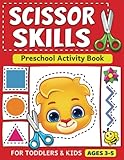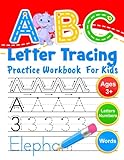“It takes a village to raise a child.” This proverb rings especially true during the preschool years, a time of incredible cognitive, emotional, and social development. As a nutritionist and meal prepping coach, I’ve witnessed firsthand the profound impact that a supportive and nurturing environment has on a child’s well-being. While navigating the world of parenting a preschooler can feel like embarking on an uncharted adventure, armed with the right tools and insights, you can foster your little one’s growth into a confident, resilient, and well-rounded individual.
Understanding the Preschooler Universe
Preschoolers, typically between the ages of 3 and 5, are like little sponges, soaking up knowledge and experiences from their surroundings. They’re brimming with curiosity, eager to explore their world, and test their limits. This period is marked by significant milestones:
- Language Development: From babbling to forming complete sentences, their language skills are blossoming, enabling them to express their thoughts, feelings, and needs more effectively.
- Emotional Intelligence: Preschoolers are beginning to develop a better understanding of their emotions and those of others. They’re learning to navigate social situations, share, take turns, and cope with frustration.
- Physical Growth: Their gross and fine motor skills are rapidly developing, paving the way for activities like running, jumping, drawing, and using utensils with increasing dexterity.
Effective Parenting Tips for Preschoolers: Navigating the Wonder Years
1. Communication is Key: Active Listening and Clear Expectations
Imagine a world where your every word is met with rapt attention and understanding. While we may not achieve that utopian ideal, we can certainly strive for open and effective communication with our preschoolers.
- Get Down to Their Level: Physically kneel or sit so you’re at eye level when talking to your child. This simple act fosters connection and shows them you’re truly present.
- Active Listening is a Superpower: Give your child your undivided attention when they’re speaking. Encourage them to express themselves fully and validate their feelings, even if you don’t fully understand their perspective.
- Establish Clear Expectations: Preschoolers thrive on routine and predictability. Clearly communicate your expectations for behavior, setting clear boundaries and consequences. Consistency is crucial for them to internalize these guidelines.
2. The Power of Play: Learning Through Exploration and Imagination
Play is the language of children. It’s through play that they explore their world, experiment with different roles, solve problems, and develop crucial social skills.
- Unstructured Playtime is Essential: Allow for plenty of unstructured playtime, where children can follow their own interests and imaginations. Whether it’s building a fort, engaging in pretend play, or creating a masterpiece with crayons, unstructured play fosters creativity and independence.
- Make Time for Active Play: Encourage physical activity through games, outdoor exploration, or simply dancing to their favorite tunes.
- Turn Everyday Activities into Learning Opportunities: From grocery shopping to cooking dinner, involve your child in everyday activities. Let them help measure ingredients, count items, or sort laundry.
 Preschoolers playing with blocks
Preschoolers playing with blocks
3. Fostering Emotional Intelligence: Naming, Understanding, and Managing Big Feelings
Preschoolers are navigating a whirlwind of emotions. Tantrums, meltdowns, and emotional outbursts are par for the course as they learn to identify and regulate their feelings.
- Help Them Label Their Emotions: Encourage your child to name their feelings. Use simple terms like “happy,” “sad,” “angry,” or “frustrated.”
- Validate Their Feelings: Let them know that it’s okay to feel their feelings, even the negative ones. Avoid dismissing or minimizing their emotions.
- Teach Healthy Coping Mechanisms: Introduce age-appropriate strategies for managing big feelings, such as taking deep breaths, counting to ten, or talking about their feelings.
4. Nurturing Independence: Encouraging Self-Help Skills
As your preschooler’s independence blossoms, empower them with age-appropriate tasks that foster a sense of accomplishment and responsibility.
- Start Small: Begin with simple tasks like dressing themselves, brushing their teeth, or putting away toys.
- Offer Praise and Encouragement: Celebrate their successes, no matter how small. Positive reinforcement goes a long way in building their confidence.
- Be Patient: Mastering new skills takes time and practice. Encourage their efforts and provide gentle guidance when needed.
5. The Importance of Routine: Creating Structure and Predictability
Just as a well-organized pantry makes meal prepping a breeze, establishing routines provides preschoolers with a sense of security and predictability.
- Consistent Bedtime Routine: A regular bedtime routine signals to their bodies that it’s time to wind down. Aim for a consistent bedtime and wake-up time, even on weekends.
- Mealtime Structure: Regular mealtimes and healthy food choices are crucial for their physical development and energy levels.
- Visual Schedules: For visual learners, create a visual schedule using pictures or drawings to represent their daily activities. This helps them anticipate transitions and reduces anxiety.
Conclusion: Embracing the Journey of Parenthood
Parenting a preschooler is a beautiful, messy, and rewarding adventure. By embracing effective communication, encouraging play-based learning, nurturing emotional intelligence, fostering independence, and establishing consistent routines, you’re providing your child with a solid foundation for a lifetime of learning and growth. Remember, there’s no one-size-fits-all approach to parenting. Trust your instincts, be patient with yourself and your child, and cherish these fleeting years – they grow up so fast!
As you navigate the world of parenting, remember that you don’t have to do it alone. Seek support from your partner, family, friends, or a parenting group. Share your experiences, challenges, and triumphs. Together, we can create a village that nurtures happy, healthy, and resilient children.
- Start Little Learn Big (Author)
- English (Publication Language)
- Wonder House Books (Author)
- English (Publication Language)
- Workbooks-Thinking Skills Grade P
- School Zone (Author)
- English (Publication Language)
- 64 Pages - 07/09/2019 (Publication Date) - Highlights Learning (Publisher)
- Carr, Kailan (Author)
- English (Publication Language)
- by RV AppStudios, Lucas & Friends (Author)
- English (Publication Language)
- Stephen, Anastasia (Author)
- English (Publication Language)
- Kim, Coloring Book (Author)
- English (Publication Language)
- WORKBOOKS - Writing in workbook pages, as opposed to typing on a computer, can help kids to focus and to learn. Writing by hand fires up specific areas of a child's brain, improving a child's ability to not only remember what he or she learns but to think of new ideas
- AMAZING - BIG Preschool Workbook is packed with 300+ colorful exercises that make learning fun! These proven activities will help prepare your child for success by teaching colors, shapes, alphabet, basic phonics, numbers, early math and more! 320 pages of learning material!










